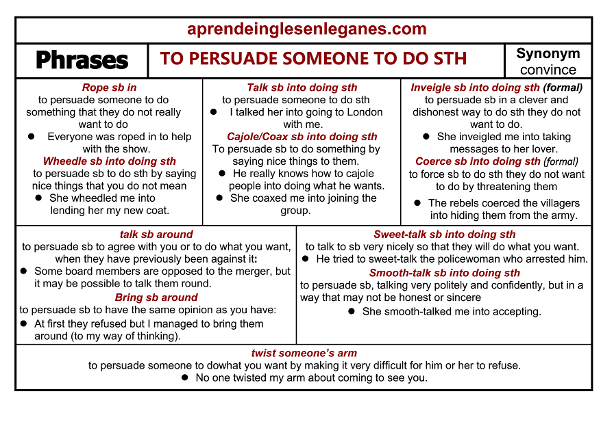How To Convince Someone To Do Something

The art of persuasion, a skill honed throughout human history, remains a vital tool in both personal and professional realms. But how does one effectively convince someone to see things your way, or even better, to take action?
This article delves into the strategies and psychological principles underpinning successful persuasion, offering practical advice for navigating conversations and achieving desired outcomes. Understanding these nuances can lead to stronger relationships, more effective collaborations, and ultimately, greater success in various endeavors.
Understanding Your Audience
The foundation of effective persuasion lies in understanding your audience. Knowing their values, beliefs, and motivations is crucial before attempting to influence them. This requires active listening and careful observation.
Are they primarily driven by logic, emotion, or a combination of both? Tailoring your approach to resonate with their specific needs and concerns will significantly increase your chances of success.
Building Rapport and Trust
People are more likely to be persuaded by someone they trust and like. Establishing rapport is therefore essential.
This involves finding common ground, showing empathy, and demonstrating genuine interest in their perspective. A genuine compliment or a shared experience can go a long way.
The Power of Framing
How you present information can dramatically influence its reception. This is known as framing.
Instead of focusing on what someone might lose, emphasize what they stand to gain. Highlighting the benefits and positive outcomes can be a powerful motivator.
Using Logic and Evidence
While emotion plays a significant role, appealing to logic and reason is equally important. Backing up your arguments with solid evidence and data can strengthen your case.
Cite credible sources and present information in a clear, concise, and easy-to-understand manner. Statistics, testimonials, and case studies can be particularly persuasive.
The Art of Negotiation
Persuasion is often intertwined with negotiation. Be prepared to compromise and find mutually beneficial solutions.
Understanding the other person's needs and willingness to negotiate helps you formulate an approach that satisfies both parties. Avoid creating a win-lose situation.
Addressing Objections
Anticipate potential objections and prepare thoughtful responses. Ignoring concerns can damage your credibility.
Acknowledge their concerns, validate their feelings, and offer counterarguments with evidence. Turn objections into opportunities to strengthen your position.
The Importance of Timing
Timing can be everything. Approaching someone when they are stressed, tired, or distracted is unlikely to yield positive results.
Choose a time when they are relaxed, receptive, and have the mental capacity to engage in a thoughtful conversation. Observe their body language and energy levels to gauge the appropriate moment.
Ethical Considerations
Persuasion should always be conducted ethically. Avoid using manipulative tactics or misleading information.
Maintain honesty and integrity throughout the process. Building long-term relationships based on trust is far more valuable than short-term gains achieved through deception. According to the American Psychological Association, ethical persuasion respects the autonomy of the individual.
Conclusion
The ability to persuade effectively is a valuable skill that can enhance communication, strengthen relationships, and achieve desired outcomes. By understanding your audience, building trust, framing your arguments strategically, and engaging ethically, you can significantly increase your persuasive power. The principles of persuasion apply to various sectors, including sales, marketing, politics, and personal relationships. Understanding and implementing these techniques can contribute to a more collaborative and successful environment in both professional and personal lives.

















